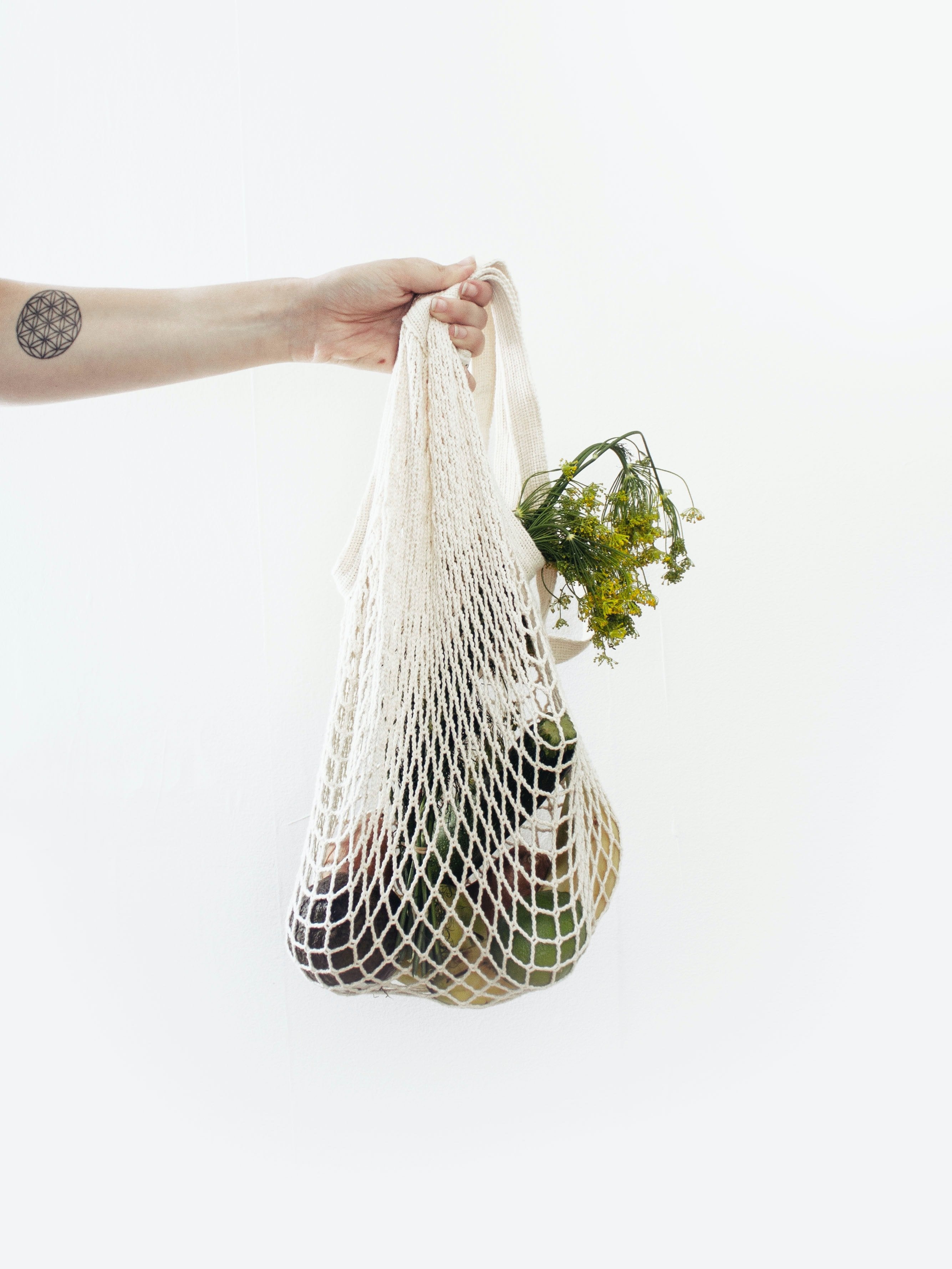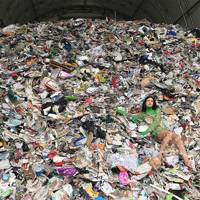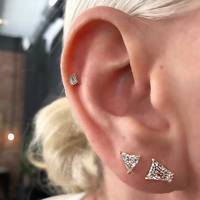

 Welcome to...
Welcome to...We believe you are trying to shop from the following location: Rest of the world
To enjoy low cost shipping and local currencies please allow us to redirect you to our local store.
Choose 3 for £45 or 5 for £75
Choose 2 from £130 or 3 from £180
Choose 2 for £20

The concept of 'sustainability' is inherently at odds with the traditional world of fashion.
An industry that makes a living by providing its fans with the very newest trends that haven't been seen or used before is surely one of the most unsustainable imaginable. And that's exactly what it is.
Reportedly the world's second most polluting industry after oil, the very nature of fashion's quick trend turnover renders it so damaging that it has become one of the most environmentally crippling industries on the planet. And, according to a recent report, it's only getting worse, with the textile industry emitting more greenhouse gas emissions than international shipping and aviation combined.
So while 'sustainable fashion' may have a reputation of being a serious snore-fest term that brands throw around in order to be seen to be fulfilling corporate social responsibility, it's an important answer to a very real problem.
Many people confuse 'sustainable fashion' with 'ethical fashion', and while the two are unquestionably linked, the concept of sustainability in the industry refers to the effects of the production of the products on the environment (ethical fashion concerns the way the product is made - encompassing everything from how the cotton was grown to whether and how animals are used, and how the garment workers are treated).
The very basic aim of fashion sustainability is to ensure that clothing is manufactured in such a way that the product's life cycle minimises any undesirable environmental effect.
While the on-going detrimental effects of the fashion industry are drilled into us, there are a number of brands acknowledging the issues and adapting their businesses to create change. Not because they need to look "good" but because it makes long-term economic sense.
Every year, thousands of tonnes of clothes are thrown away with household waste and as much as 95% of those clothes could be recycled. Buying new materials doesn't make business sense when a brand could reuse what they have already. Waste doesn't make business sense.

E.L.V Denim are another brand leading by example, creating pairs of jeans from deadstock fabric that's been previously rejected. One of the world's most polluting fabrics - it takes approximately 1,800 gallons of water to grow enough cotton to form jut one pair of jeans - denim is a crucial material to target in the sustainability fight. Thankfully, Director and Founder of E.L.V (East London Vintage) Denim, Anna Foster, has a great eye, and her pieces are more stylish than most anywhere else on the market - sustainable or otherwise.

Another high fashion label leading by example is Ksenia Schnaider, a denim brand committed to the cause (last year alone they created 3000 'new' pieces from unwanted jeans). Creating items popular amongst the street style set, the design duo only uses denim bought from flea markets in Kiev, before often re-using and recycling it themselves. But while 'recycling' fashion may imply a safe - if slightly dull - look, their aesthetic is, in fact, anything but. Loose-fitting shapes host edgy, ripped-denim designs in nostalgic indigo and washed-out hues that are adored by the likes of Bella Hadid, Eva Chen and Dua Lipa.

In 2013, H&M were the first fashion brand in the world to launch a global garment collection initiative, allowing customers to hand in any unwanted clothes or materials to any H&M store regardless of the brand or the condition of them in return for a £5 voucher to spend in-store. Additionally, each year H&M launch the Conscious Exclusive collection. The collection comprises of "high-end environmentally friendly pieces, aiming to move H&M’s fashion and sustainability development towards a more sustainable fashion future."

Zara's parent company, Inditex, is following suit, and also now encourages shoppers to drop off their used garments in order for the brand to recycle and reuse. In 2016, Zara also launched its answer to H&M's Conscious Collection via its 'Join Life' initiative - a collection of sustainably created pieces. By the end of 2020, the high street stalwart aims to no longer send anything to landfills from their own headquarters, logistics centres, stores and factories.

Founded by Grace Beverley just over a year ago TALA has grown to be one of the biggest sustainable brands in the world. Manufacturing clothes from recycled materials that usually would have gone to waste the brand are are on a mission to create products that are 100% up-cycled, and are already 92% of the way there!
Loved by Kendall Jenner, Lady Gaga and Emily Ratajkowski - has just announced a partnership with Diamond Foundry, the leader in carbon neutral, sustainable lab grown diamonds known for their quality.

Headed up by creative directors and co founders Louise Olsen and Stephen Ormandy, the label's resin homewares and jewellery have earned themselves a place in many hearts and homes thanks to both their aesthetic originality and their conscious credentials. The team designs and hand makes pieces using low-energy methods from a product derived from a waste material. The resin is developed from a by-product of the oil industry and has a use-by date. In its unprocessed state it is essentially a waste product, which can either be burnt or - if not used in time - can solidify making it unusable and often dumped in landfill.


For lovers of luxury, there's no need to avoid resale sites. Cudoni are the UK's leading premium luxury fashion and goods resale service, who treat every client as a VIP and make the entire process a breeze - from complimentary collection from a location of your choice, to opening up a discourse with you about data-driven valuation, photographing the product and going on to sell it. They also achieve a sales price that is on average 30% higher than if you were to sell the same item independently.
Other great examples of sustainable initiatives include Levi's' Waste<Less Collection; a collection of pieces that are made of 20 per cent post-consumer waste - specifically, recycled plastic bottles (that works out to an average of three to eight plastic bottles per pair) - and COS's repurposed cotton project, which sees the high street hero use their own excess fabric to create new garments.
Teaming up with non-profit organisation Parley, Adidas last year sold more than 1 million pairs of shoes from recycled ocean plastic, with each preventing about 11 plastic bottles from the possibility of entering our oceans. They have created a material trademarked ‘Ocean Plastic’, which is made entirely from plastic intercepted on beaches and in coastal communities. A sustainable version of the popular Deerupt trainer made from partially upcycled ocean plastic intercepted on Maldivian beaches was a particular highlight, and the new The ALPHAEDGE 4D incorporates upcycled marine debris – a new symbol of change, driving the movement forwards

There are also a whole host of fashion boutiques dedicated to the cause. Antibad - a website launched in 2017 that does exactly what it says on the tin - strives to "change the perception of sustainable fashion. Antibad is about having fun with fashion without damaging anything else." The result? A curated collection of conscious pieces from the designer likes of Mara Hoffman through to beautiful vintage dresses and long-lasting basics.

For such an important question, the answer is very simple - shop from labels and collections that support sustainability. That way you can fuel your love for new trends without supporting the production of damaging, unrecyclable materials.
Other ways would be to adopt a charity shop habit and buy pre-loved clothing (a great way to snap up 'vintage' pieces without the price tag of London's edgiest vintage stores).
Like this article? Sign up to our newsletter to get more delivered straight to your inbox
_____________
The Sunday Scroll: Things That Made Life Feel Better
Episode 8: Beyond the Continent
Episode 7: How to Wear a Fantasy
Customer service
Talk to us via chat. 9-5pm EST. Wed - Sun
Fast Free Shipping
Get free shipping on orders of £60 or more
New Customers
New customers enjoy 10% off their first order
Secure payment
Your payment information is processed securely


Share:
Pride Month
World Oceans Day